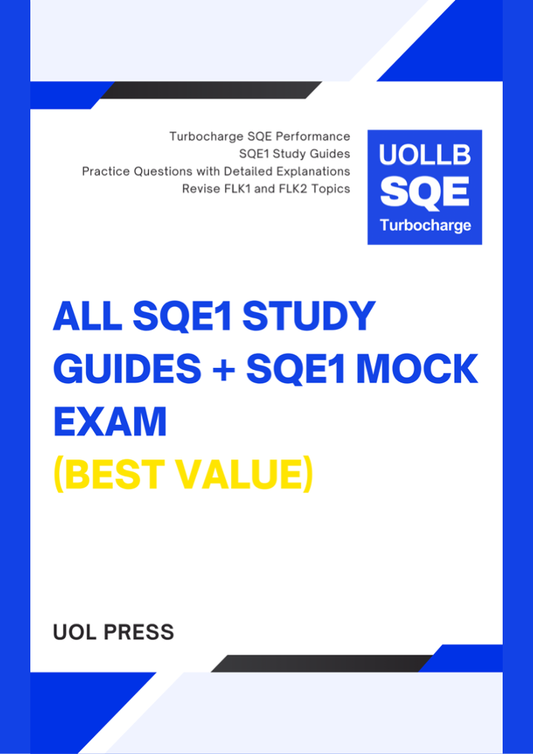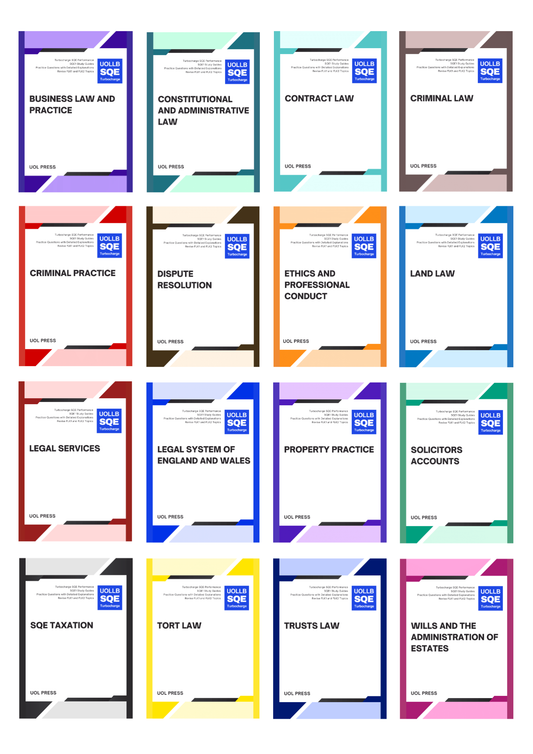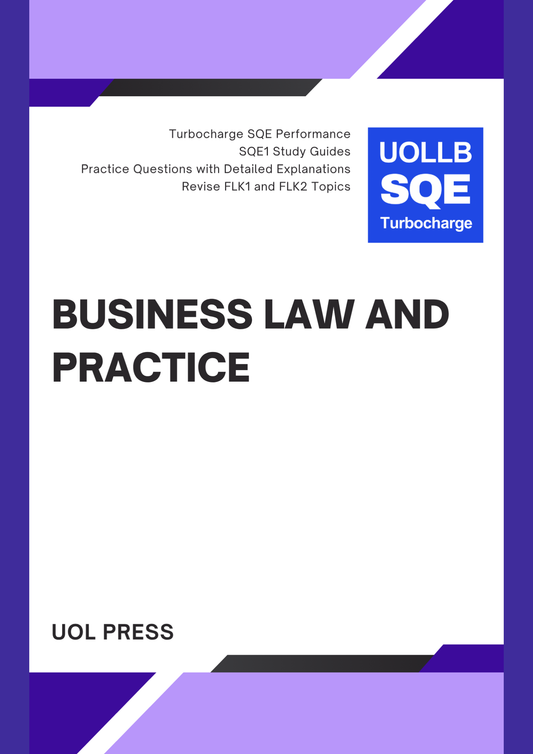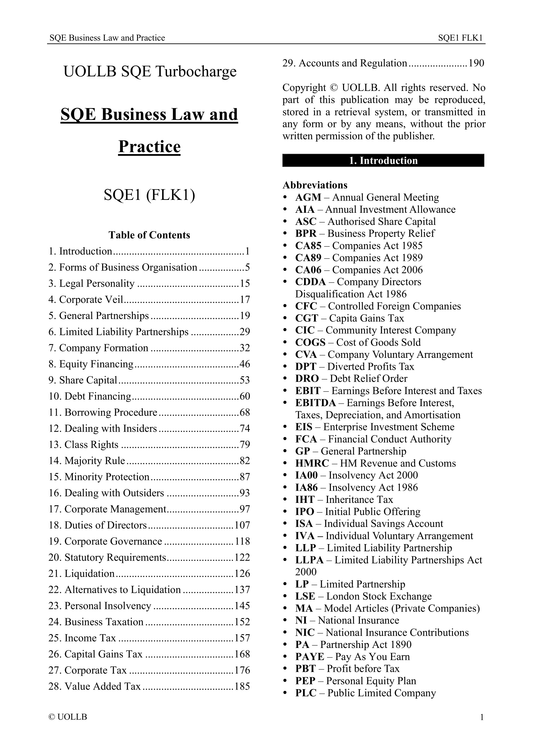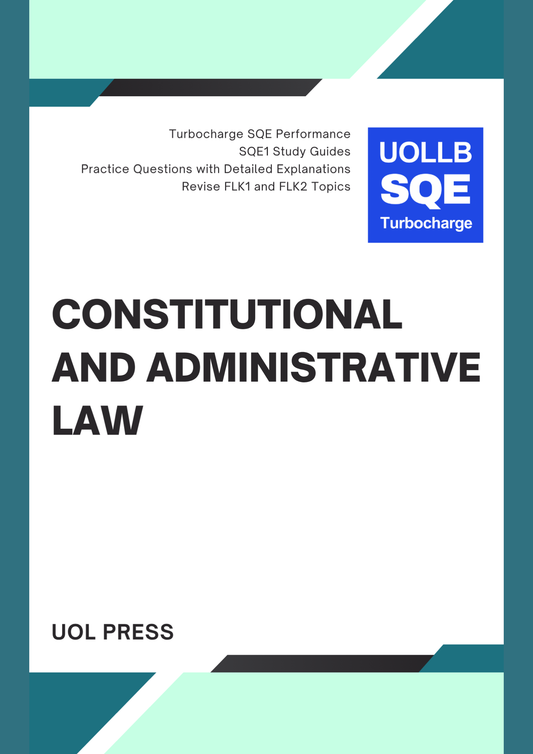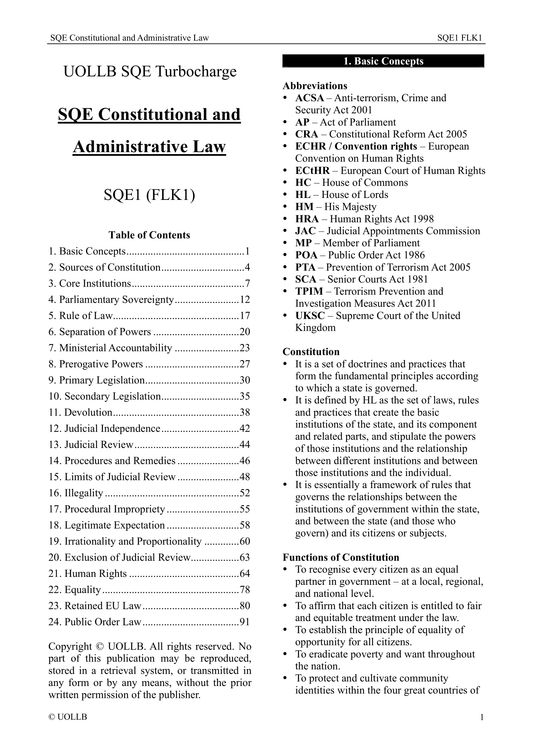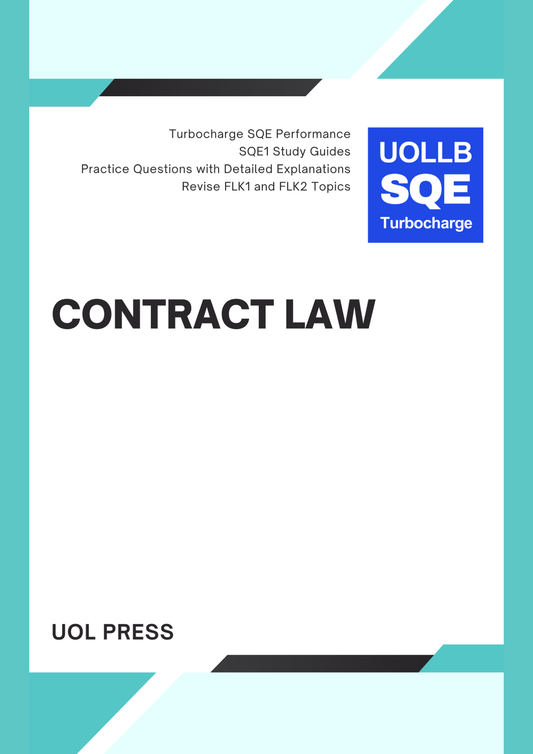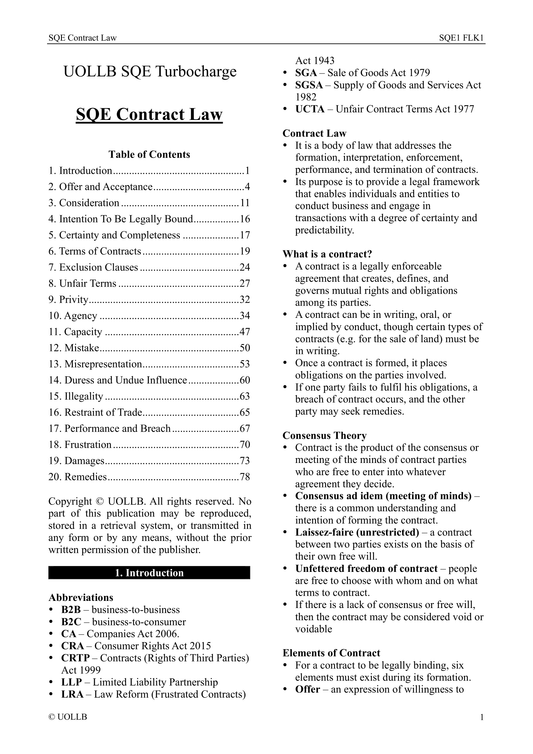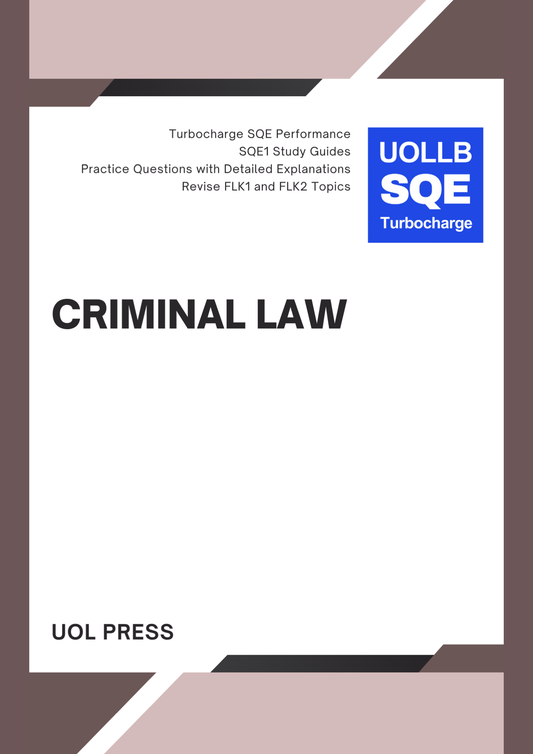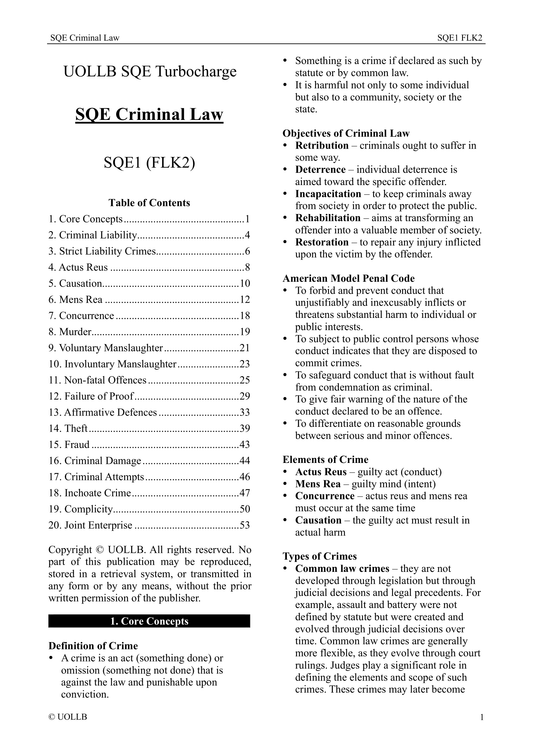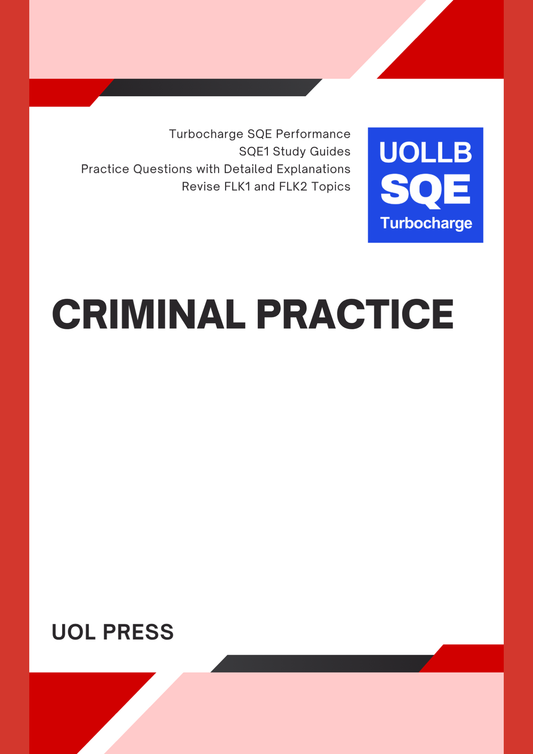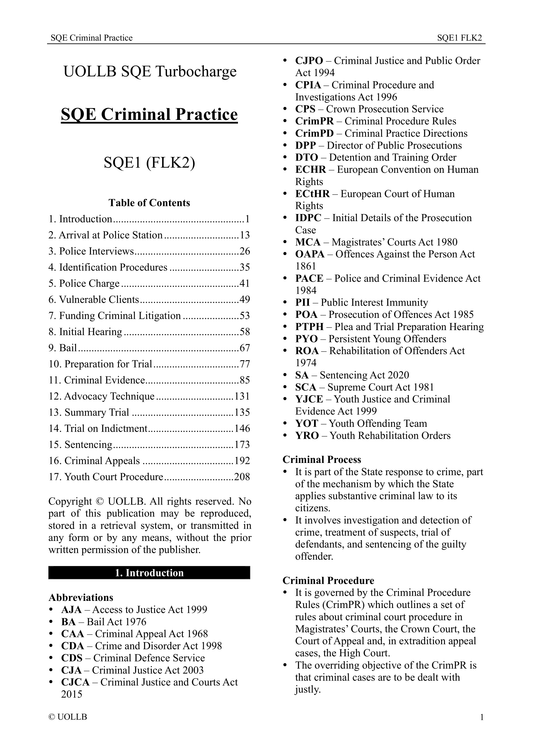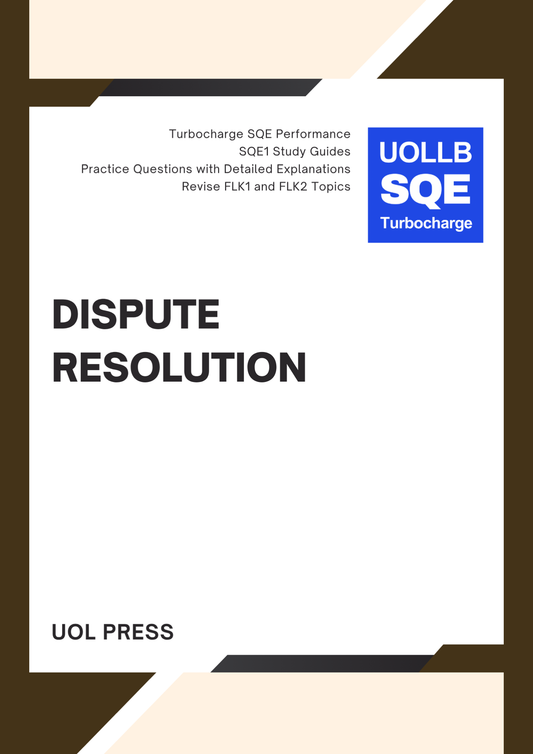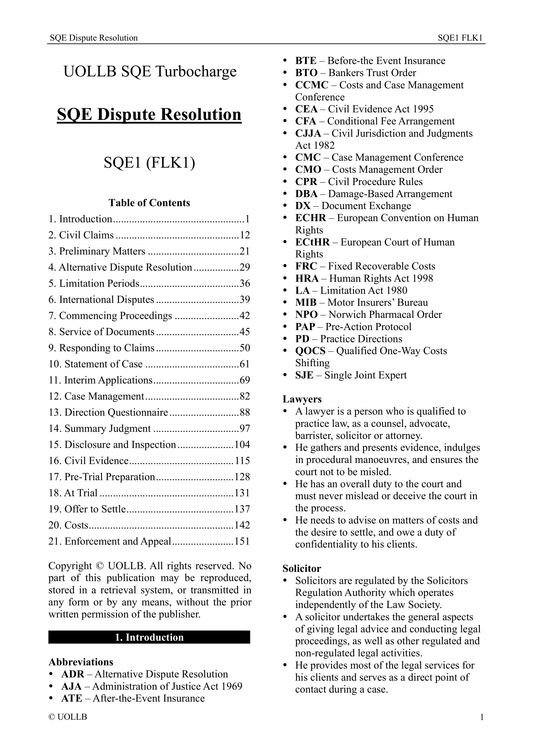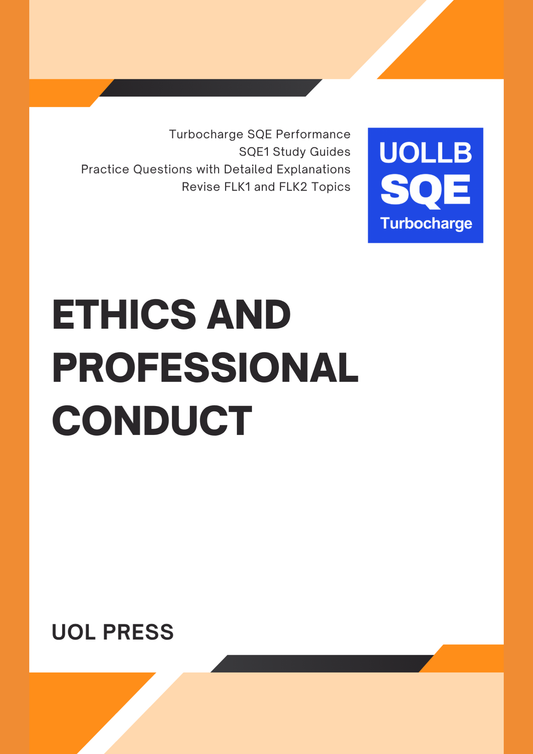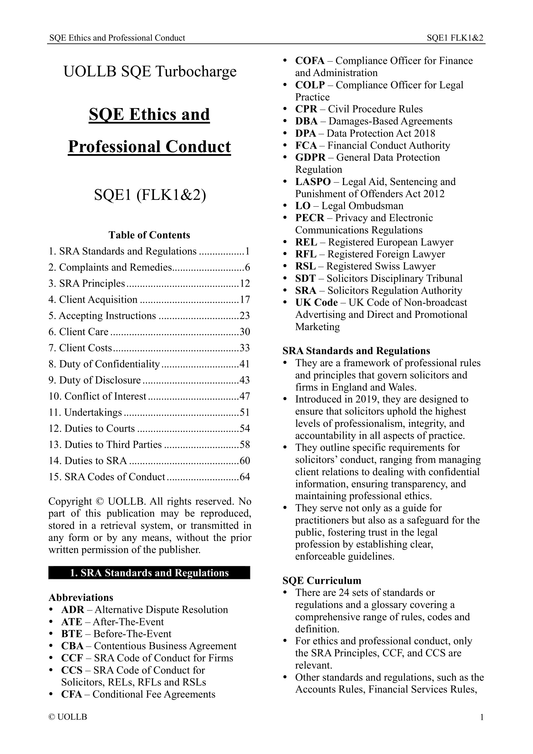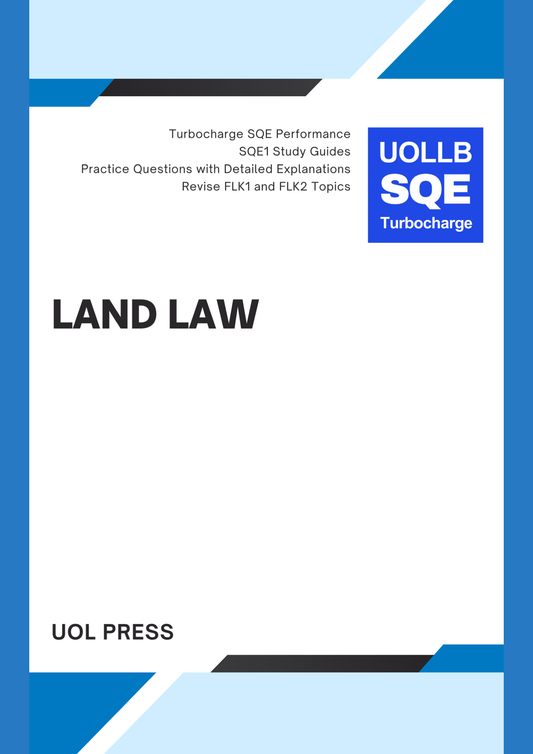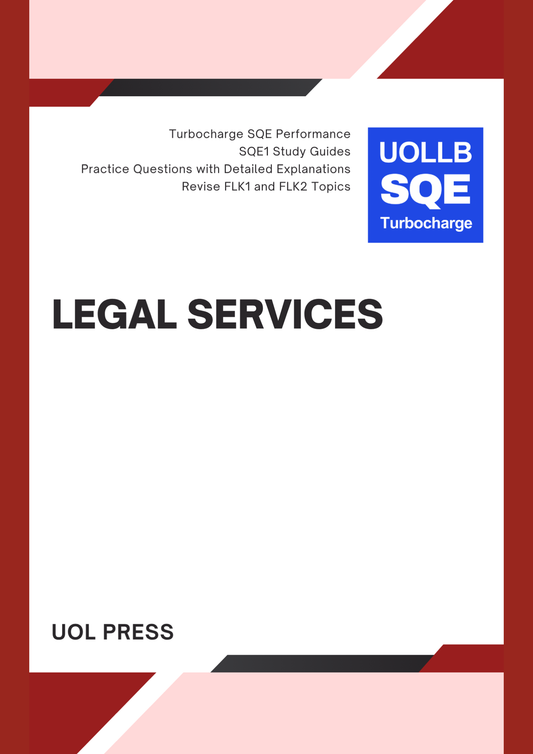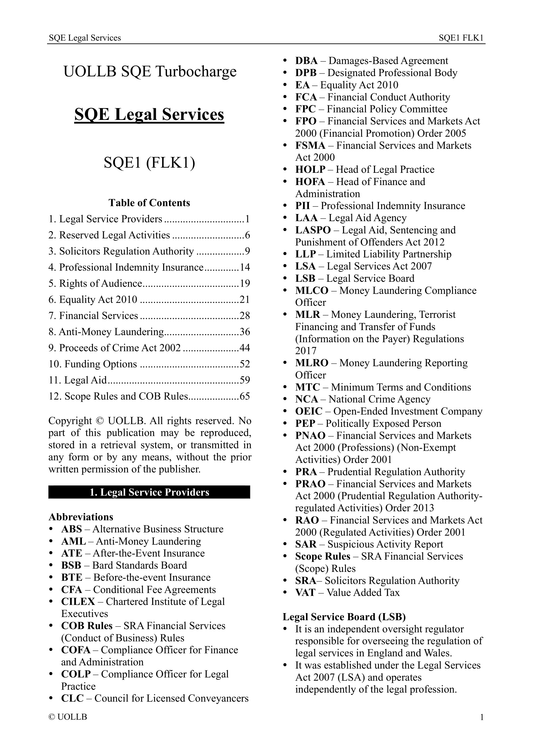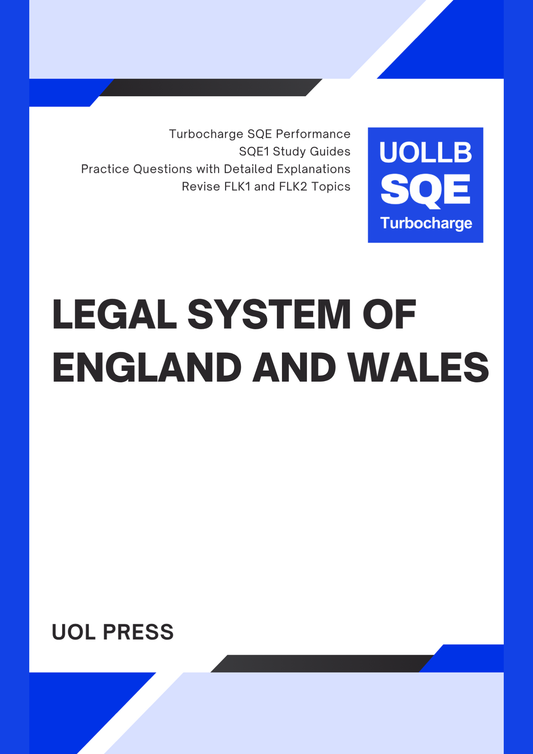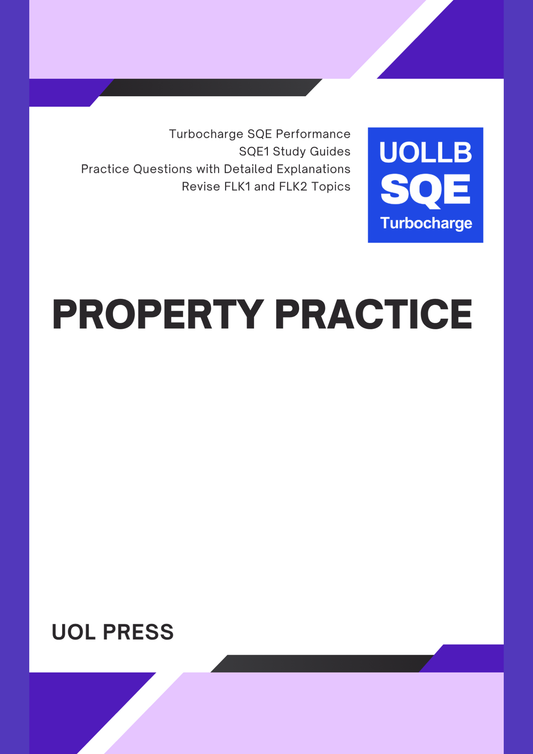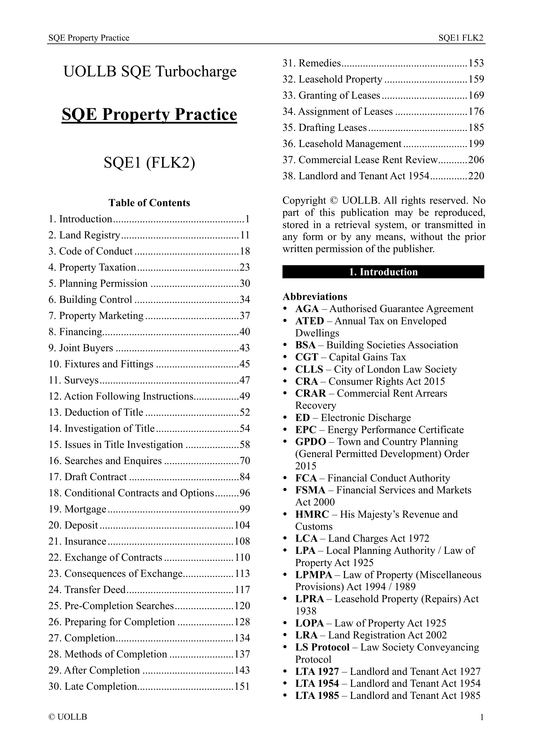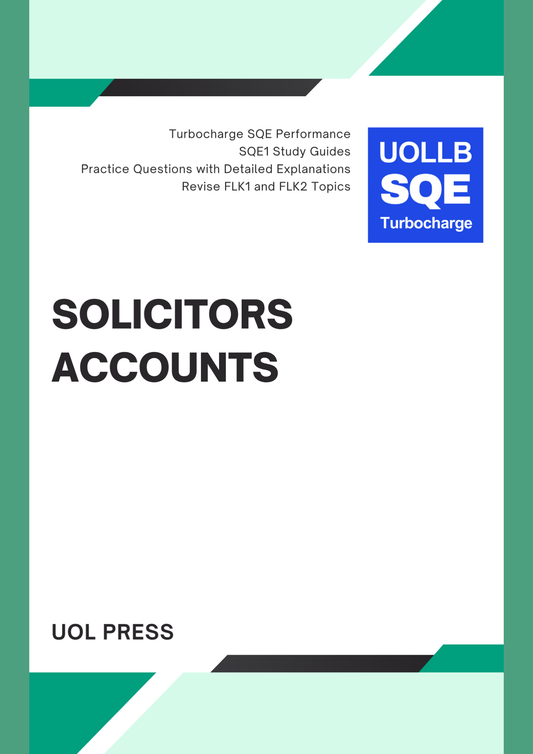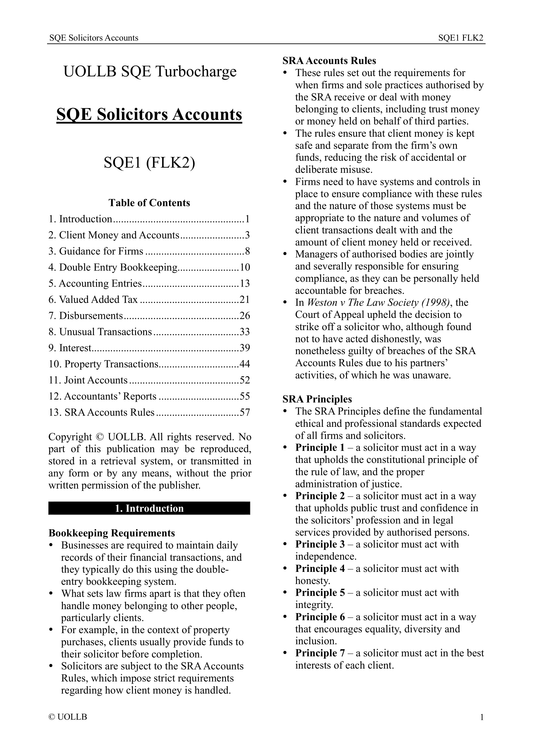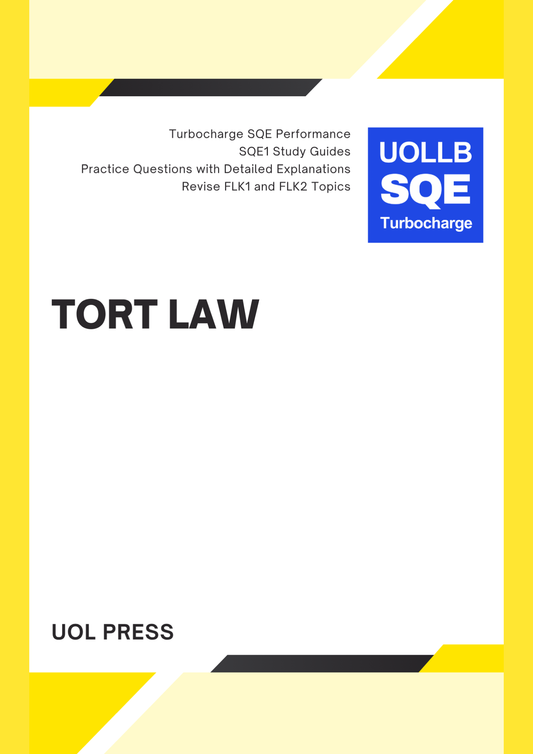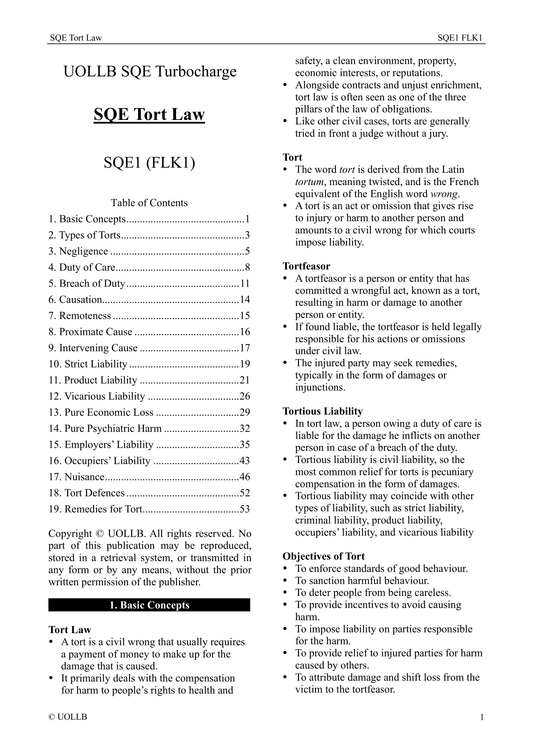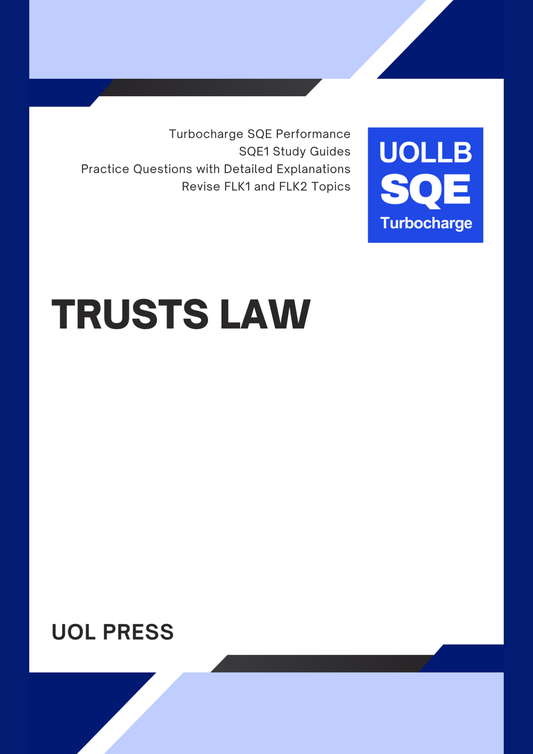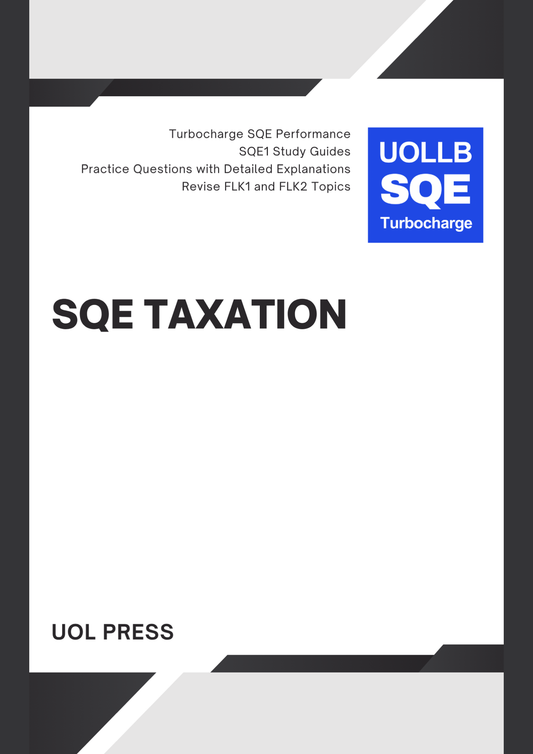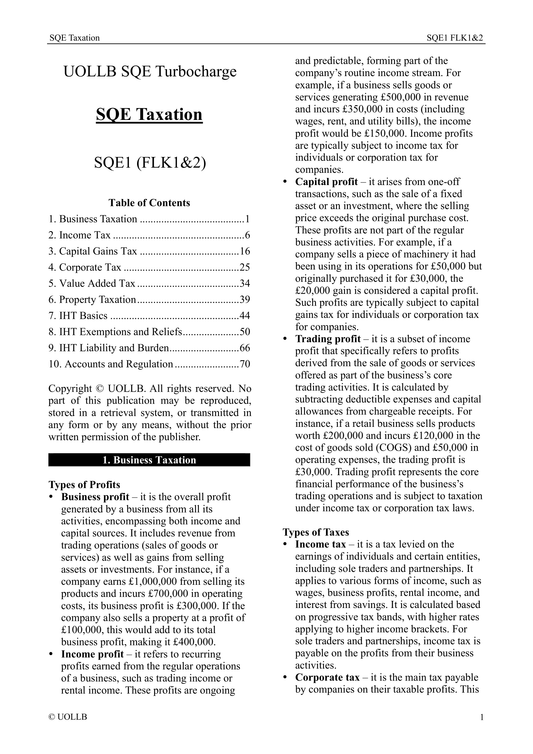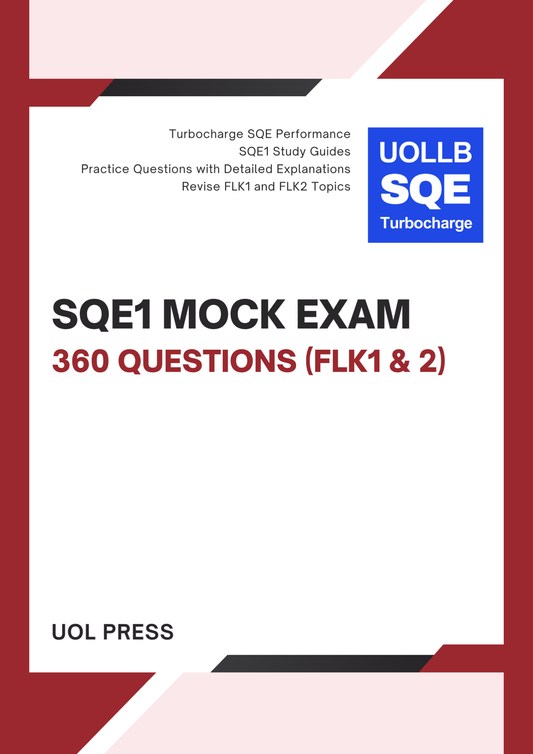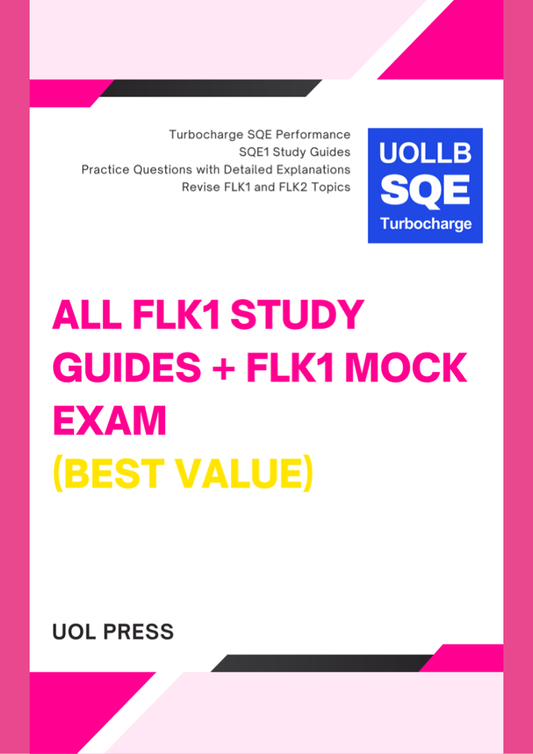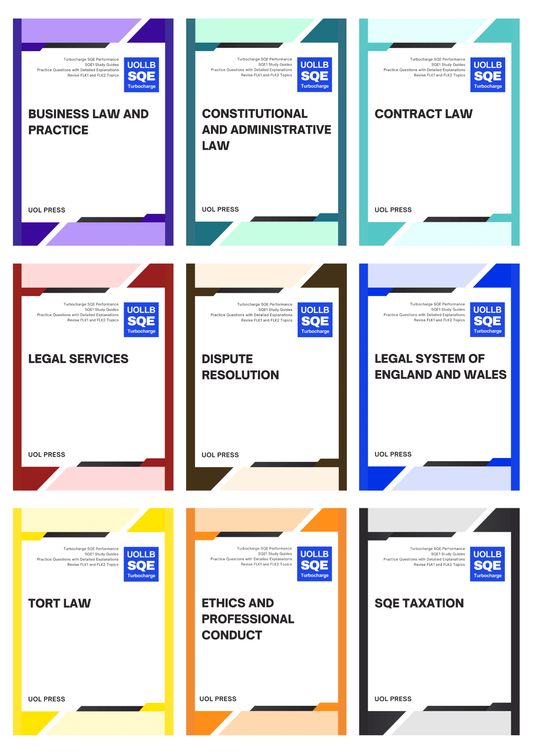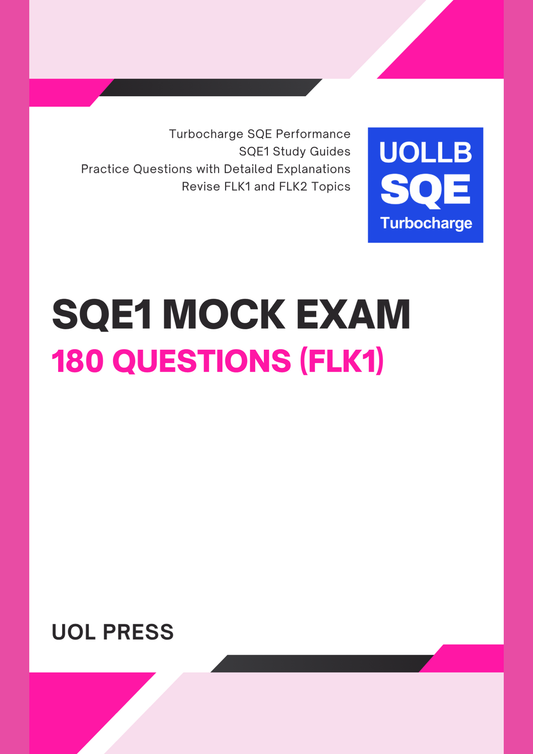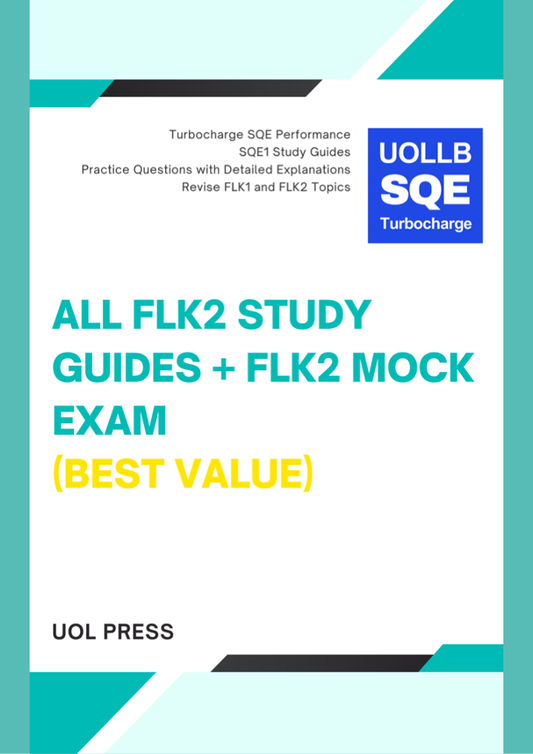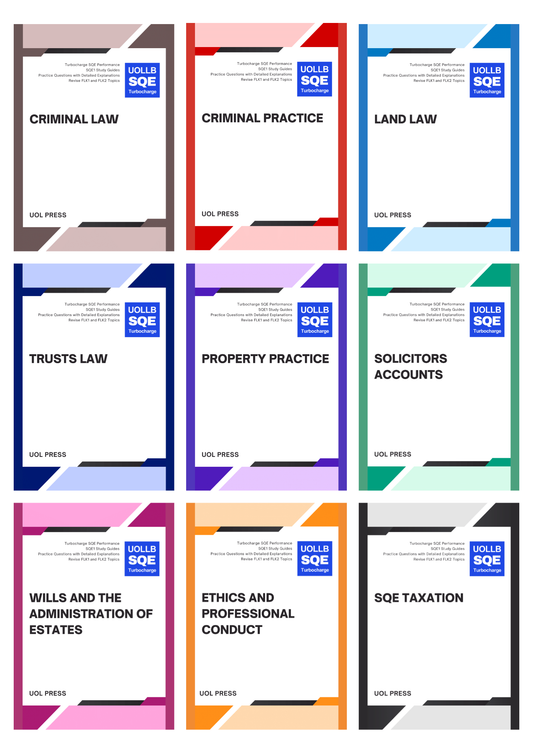SQE Training Options
Share
Preparing for SQE involves choosing a training pathway that fits your background, learning style, and financial situation. Whether you are starting with a law degree, transitioning from another field, or self-funding your preparation, various options are available to meet your needs. Each approach has its advantages, challenges, and funding considerations.
1. A Law Degree Integrating SQE1 Preparation
Some universities now offer undergraduate law degrees designed to prepare students for SQE1 as part of the curriculum. These programmes integrate the full range of topics covered in SQE1, alongside the skills needed to pass the assessment. This option eliminates the need for additional SQE1 training, streamlining the process of qualification. Undergraduate student loans cover tuition fees and maintenance costs, which vary by household income. Prospective students should verify that the course comprehensively covers SQE1 topics and inquire whether opportunities for Qualifying Work Experience (QWE) are embedded, such as placements in a university law clinic. However, as the SQE curriculum is very extensive, most law degree programmes cannot cover the entire curriculum. You may still need to top up your functioning legal knowledge by self-study or through a preparation course.
2. A Law Degree Plus Additional SQE Preparation
Some law degrees do not fully prepare students for SQE1 but cover foundational legal subjects. In such cases, students can supplement their learning with focused SQE1 preparation courses after graduation. The undergraduate degree is covered by the same loan provisions. However, supplementary SQE1 preparation courses are typically self-funded and do not qualify for student loans. You should evaluate the coverage of your law degree to identify knowledge gaps. Additional training can be funded through self-financing, employer sponsorship, or flexible payment plans offered by training providers. Another option is enrolling in a master’s degree with SQE1 preparation, which is eligible for postgraduate loans.
3. Non-Law Degree Plus SQE Preparation
SQE has opened the legal profession to candidates from non-law backgrounds. Those with a degree in another discipline can qualify as solicitors by undertaking additional training to cover the full range of SQE1 topics. Non-law graduates can enrol in SQE preparation courses specifically tailored to their needs. These courses are generally longer and more comprehensive than those designed for law graduates, as they must include foundational legal concepts in addition to SQE-specific content. Alternatively, a master’s degree incorporating SQE1 preparation is available. Like law graduates, non-law graduates must self-fund their SQE preparation courses. They can explore employer sponsorship, commercial bank loans, or payment plans provided by course providers. Postgraduate loans can also be used to fund master’s degrees. However, this pathway demands a commitment to learning foundational law alongside SQE-specific training, so you should carefully select courses that cater to your educational background.
4. SQE Preparation Courses
Specialised SQE1 and SQE2 preparation courses are widely available from private training providers. These courses focus exclusively on the syllabus and skills required for the assessments, offering structured learning, practice exams, and feedback from experienced tutors. Many courses are tailored to individual schedules, with options for full-time, part-time, or online learning. They often include valuable resources such as question banks, mock assessments, and personalised support. However, these courses are not eligible for student loans but can be financed through self-funding, employer sponsorship, flexible payment options, or commercial loans. You should evaluate course providers based on their reputation, the quality of resources, and additional features like access to mentors and practice tools.
5. Self-Learning
For those who prefer a flexible and economical approach, self-learning is a viable option. You can use textbooks (e.g. UOLLB SQE Turbocharge), online resources (e.g. UOL Press and UOLLB), and question banks (e.g. SQE1 Mock Exam) to independently prepare for the SQE assessments. This option is highly affordable and allows you to study at your own pace, making it ideal for those balancing work or other commitments. However, self-learning requires strong motivation and discipline, as there is no structured support or feedback mechanism. It is best suited for candidates who are confident in their ability to manage their own learning and have some legal background or experience.
Each of these options provides distinct benefits and challenges, catering to the diverse needs of SQE candidates. Whether you opt for a fully integrated law degree, supplementary courses, a master’s programme, or self-learning, the key is to choose a pathway that aligns with your career goals, learning style, and budget.
1. A Law Degree Integrating SQE1 Preparation
Some universities now offer undergraduate law degrees designed to prepare students for SQE1 as part of the curriculum. These programmes integrate the full range of topics covered in SQE1, alongside the skills needed to pass the assessment. This option eliminates the need for additional SQE1 training, streamlining the process of qualification. Undergraduate student loans cover tuition fees and maintenance costs, which vary by household income. Prospective students should verify that the course comprehensively covers SQE1 topics and inquire whether opportunities for Qualifying Work Experience (QWE) are embedded, such as placements in a university law clinic. However, as the SQE curriculum is very extensive, most law degree programmes cannot cover the entire curriculum. You may still need to top up your functioning legal knowledge by self-study or through a preparation course.
2. A Law Degree Plus Additional SQE Preparation
Some law degrees do not fully prepare students for SQE1 but cover foundational legal subjects. In such cases, students can supplement their learning with focused SQE1 preparation courses after graduation. The undergraduate degree is covered by the same loan provisions. However, supplementary SQE1 preparation courses are typically self-funded and do not qualify for student loans. You should evaluate the coverage of your law degree to identify knowledge gaps. Additional training can be funded through self-financing, employer sponsorship, or flexible payment plans offered by training providers. Another option is enrolling in a master’s degree with SQE1 preparation, which is eligible for postgraduate loans.
3. Non-Law Degree Plus SQE Preparation
SQE has opened the legal profession to candidates from non-law backgrounds. Those with a degree in another discipline can qualify as solicitors by undertaking additional training to cover the full range of SQE1 topics. Non-law graduates can enrol in SQE preparation courses specifically tailored to their needs. These courses are generally longer and more comprehensive than those designed for law graduates, as they must include foundational legal concepts in addition to SQE-specific content. Alternatively, a master’s degree incorporating SQE1 preparation is available. Like law graduates, non-law graduates must self-fund their SQE preparation courses. They can explore employer sponsorship, commercial bank loans, or payment plans provided by course providers. Postgraduate loans can also be used to fund master’s degrees. However, this pathway demands a commitment to learning foundational law alongside SQE-specific training, so you should carefully select courses that cater to your educational background.
4. SQE Preparation Courses
Specialised SQE1 and SQE2 preparation courses are widely available from private training providers. These courses focus exclusively on the syllabus and skills required for the assessments, offering structured learning, practice exams, and feedback from experienced tutors. Many courses are tailored to individual schedules, with options for full-time, part-time, or online learning. They often include valuable resources such as question banks, mock assessments, and personalised support. However, these courses are not eligible for student loans but can be financed through self-funding, employer sponsorship, flexible payment options, or commercial loans. You should evaluate course providers based on their reputation, the quality of resources, and additional features like access to mentors and practice tools.
5. Self-Learning
For those who prefer a flexible and economical approach, self-learning is a viable option. You can use textbooks (e.g. UOLLB SQE Turbocharge), online resources (e.g. UOL Press and UOLLB), and question banks (e.g. SQE1 Mock Exam) to independently prepare for the SQE assessments. This option is highly affordable and allows you to study at your own pace, making it ideal for those balancing work or other commitments. However, self-learning requires strong motivation and discipline, as there is no structured support or feedback mechanism. It is best suited for candidates who are confident in their ability to manage their own learning and have some legal background or experience.
Each of these options provides distinct benefits and challenges, catering to the diverse needs of SQE candidates. Whether you opt for a fully integrated law degree, supplementary courses, a master’s programme, or self-learning, the key is to choose a pathway that aligns with your career goals, learning style, and budget.
